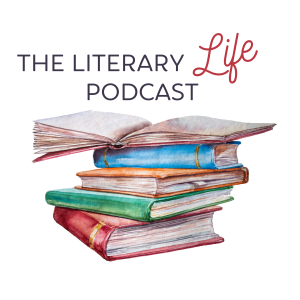
Welcome back to The Literary Life Podcast and the second episode of our series on George MacDonald's Phantastes, covering chapters 5-9. Angelina and Thomas kick off the book chat sharing some thoughts on the Duessa-type character in this section. Cindy mentions the connection she made to James Russell Lowell's poem, "The Vision of Sir Launfal." They go on to discuss the parallels between this section and the Pygmalion myth. Other mythological references abound throughout the story, as we will see. Our hosts go deep exploring the themes of deception, the fall, doppelgangers and spiritual death in these chapters.
Don’t forget to check out the Advent and Christmas resources our hosts have ready for your holiday season. As mentioned before, Cindy’s new edition of Hallelujah: Cultivating Advent Traditions with Handel’s Messiah is available now, and she has a live celebration even happening on November 19, 2020. Check our CindyRollins.net for more information. Also, Thomas and Angelina have a sale going on for an Advent Bundle of their popular webinars, Charles Dickens’ A Christmas Carol and The Poetry of Advent. Additionally, Kelly Cumbee will be teaching a webinar series called “Seeking the Discarded Image: Nature.”
Be back next week when we will cover chapters 10-14. Remember to join the discussion in our Literary Life Discussion Group.
Commonplace Quotes:A person reveals his character by nothing so clearly as the joke he resents.
Georg Christoph LichtenbergSchool isn’t supposed to be a polite form of incarceration, but a portal to the wider world.
Richard LouvMilton’s point in Paradise Lost is that free man can be instructed only by the non-compulsive forms, whether vision, parable, or drama. Hence Paradise Lost is a series of interlocking visions, Adam warned by the cathartic contrapuntal vision of satanic fall, and fall through vision of Eve. To fall is to choose an illusion, not a wrong reason.
Northrup Frye When I have Fears That I May Cease to Beby John Keats
When I have fears that I may cease to be
Before my pen has gleaned my teeming brain,
Before high-pilèd books, in charactery,
Hold like rich garners the full ripened grain;
When I behold, upon the night’s starred face,
Huge cloudy symbols of a high romance,
And think that I may never live to trace
Their shadows with the magic hand of chance;
And when I feel, fair creature of an hour,
That I shall never look upon thee more,
Never have relish in the faery power
Of unreflecting love—then on the shore
Of the wide world I stand alone, and think
Till love and fame to nothingness do sink.
(Amazon affiliate links)
Last Child in the Woods by Richard Louv
Notebooks on Renaissance Literature by Northrup Frye
The Silver Chair by C. S. Lewis
The Faerie Queene by Edmund Spenser
Alice’s Adventures in Wonderland by Lewis Carol
Undine by Friedrich de la Motte Fouquée
Faust (Parts One and Two) by Johann Wolfgang von Goethe
The Strange Case of Dr. Jekyll and Mr. Hyde by Robert Louis Stevenson
Support The Literary Life:Become a patron of The Literary Life podcast as part of the “Friends and Fellows Community” on Patreon, and get some amazing bonus content! Thanks for your support!
Connect with Us:You can find Angelina and Thomas at HouseofHumaneLetters.com, on Instagram @angelinastanford, and on Facebook at https://www.facebook.com/ANGStanford/
Find Cindy at https://cindyrollins.net, on Instagram @cindyordoamoris and on Facebook at https://www.facebook.com/cindyrollins.net/. Check out Cindy’s own Patreon page also!
Follow The Literary Life on Instagram, and jump into our private Facebook group, The Literary Life Discussion Group, and let’s get the book talk going! http://bit.ly/literarylifeFB
More Episodes
 2022-03-29
2022-03-29
Create your
podcast in
minutes
- Full-featured podcast site
- Unlimited storage and bandwidth
- Comprehensive podcast stats
- Distribute to Apple Podcasts, Spotify, and more
- Make money with your podcast
It is Free
- Privacy Policy
- Cookie Policy
- Terms of Use
- Consent Preferences
- Copyright © 2015-2024 Podbean.com





